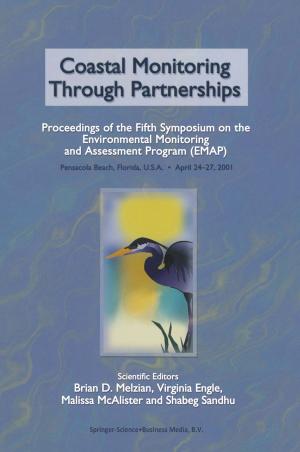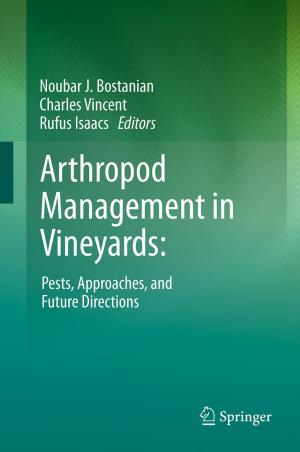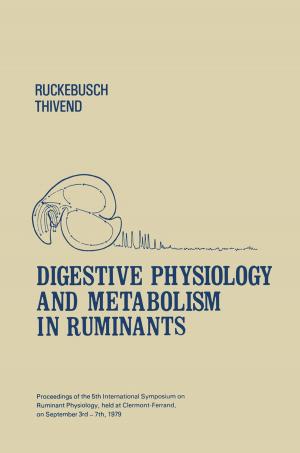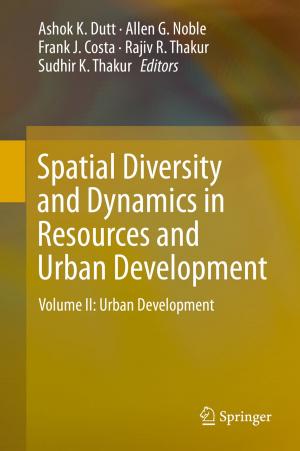Microorganisms in Environmental Management
Microbes and Environment
Nonfiction, Science & Nature, Science, Biological Sciences, Microbiology, Technology, Agriculture & Animal Husbandry| Author: | ISBN: | 9789400722293 | |
| Publisher: | Springer Netherlands | Publication: | January 2, 2012 |
| Imprint: | Springer | Language: | English |
| Author: | |
| ISBN: | 9789400722293 |
| Publisher: | Springer Netherlands |
| Publication: | January 2, 2012 |
| Imprint: | Springer |
| Language: | English |
Microbes and their biosynthetic capabilities have been invaluable in finding solutions for several intractable problems mankind has encountered in maintaining the quality of the environment. They have, for example, been used to positive effect in human and animal health, genetic engineering, environmental protection, and municipal and industrial waste treatment. Microorganisms have enabled feasible and cost-effective responses which would have been impossible via straightforward chemical or physical engineering methods. Microbial technologies have of late been applied to a range of environmental problems, with considerable success.
This survey of recent scientific progress in usefully applying microbes to both environmental management and biotechnology is informed by acknowledgement of the polluting effects on the world around us of soil erosion, the unwanted migration of sediments, chemical fertilizers and pesticides, and the improper treatment of human and animal wastes. These harmful phenomena have resulted in serious environmental and social problems around the world, problems which require us to look for solutions elsewhere than in established physical and chemical technologies. Often the answer lies in hybrid applications in which microbial methods are combined with physical and chemical ones. When we remember that these highly effective microorganisms, cultured for a variety of applications, are but a tiny fraction of those to be found in the world around us, we realize the vastness of the untapped and beneficial potential of microorganisms. At present, comprehending the diversity of hitherto uncultured microbes involves the application of metagenomics, with several novel microbial species having been discovered using culture-independent approaches. Edited by recognized leaders in the field, this penetrating assessment of our progress to date in deploying microorganisms to the advantage of environmental management and biotechnology will be widely welcomed.
Microbes and their biosynthetic capabilities have been invaluable in finding solutions for several intractable problems mankind has encountered in maintaining the quality of the environment. They have, for example, been used to positive effect in human and animal health, genetic engineering, environmental protection, and municipal and industrial waste treatment. Microorganisms have enabled feasible and cost-effective responses which would have been impossible via straightforward chemical or physical engineering methods. Microbial technologies have of late been applied to a range of environmental problems, with considerable success.
This survey of recent scientific progress in usefully applying microbes to both environmental management and biotechnology is informed by acknowledgement of the polluting effects on the world around us of soil erosion, the unwanted migration of sediments, chemical fertilizers and pesticides, and the improper treatment of human and animal wastes. These harmful phenomena have resulted in serious environmental and social problems around the world, problems which require us to look for solutions elsewhere than in established physical and chemical technologies. Often the answer lies in hybrid applications in which microbial methods are combined with physical and chemical ones. When we remember that these highly effective microorganisms, cultured for a variety of applications, are but a tiny fraction of those to be found in the world around us, we realize the vastness of the untapped and beneficial potential of microorganisms. At present, comprehending the diversity of hitherto uncultured microbes involves the application of metagenomics, with several novel microbial species having been discovered using culture-independent approaches. Edited by recognized leaders in the field, this penetrating assessment of our progress to date in deploying microorganisms to the advantage of environmental management and biotechnology will be widely welcomed.















